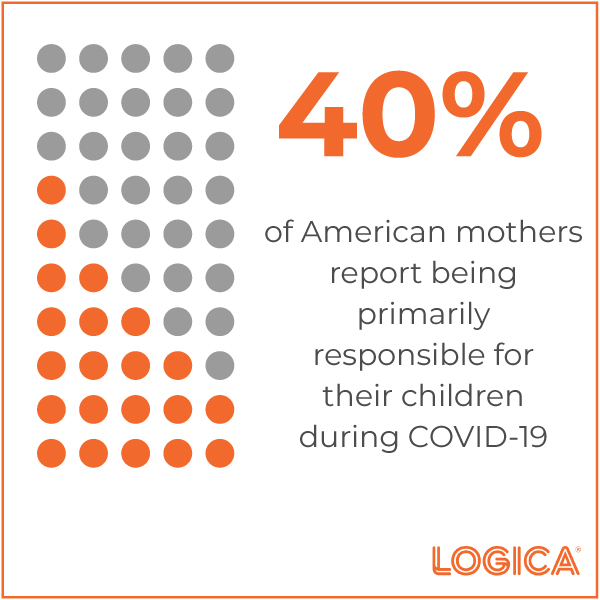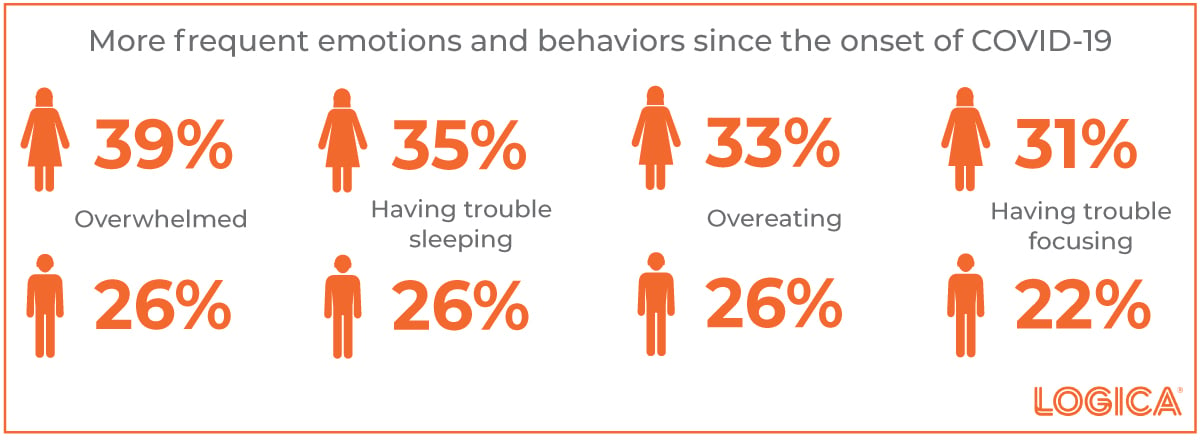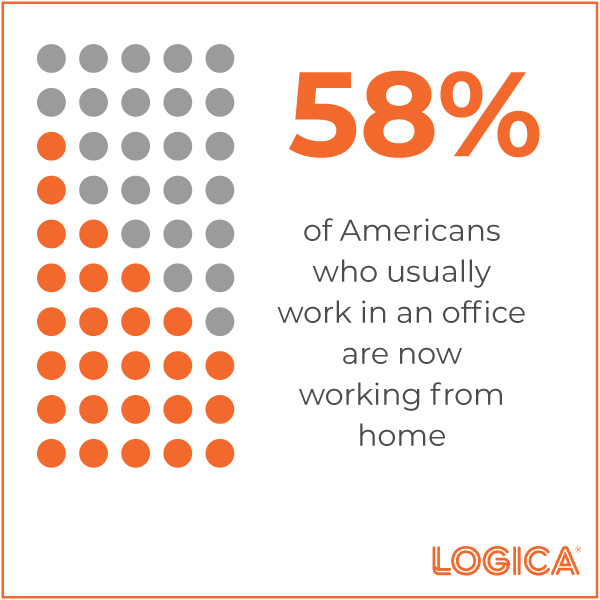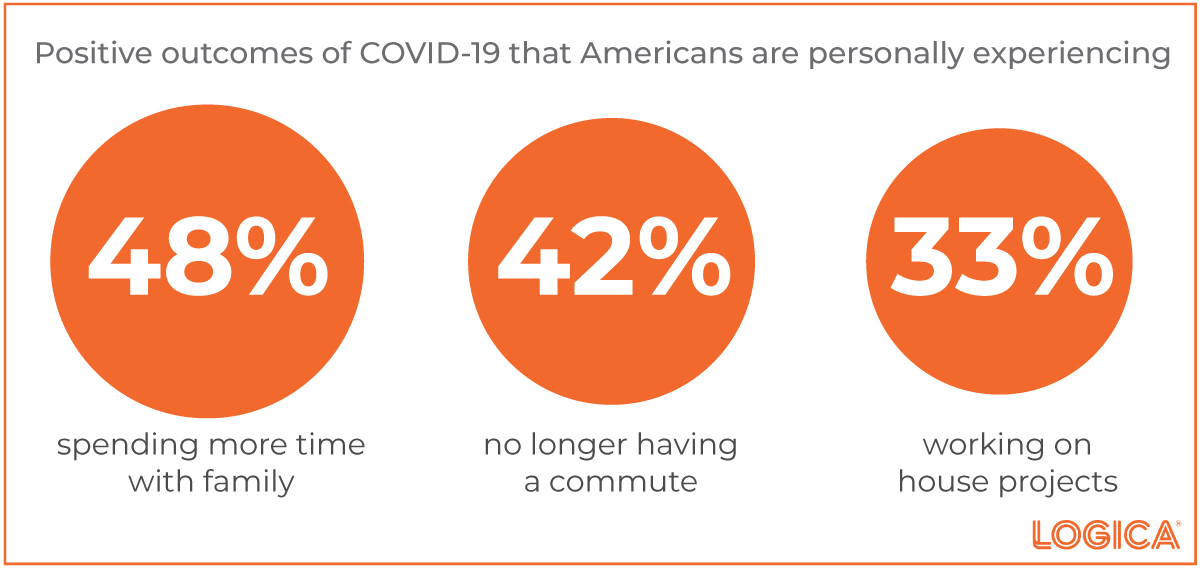Back to school and back to work as we previously knew it may not be happening any time soon, especially as we see COVID-19 cases increase across the United States. What does this mean for working parents, stress levels, and personal finances? Building on our recent Future of Money Study, Logica worked in collaboration with InnovateMR and Women in Research to produce a new American Worker Study. As we look more closely at how the pandemic is affecting childcare, work, finances, and life, we find a gender divide where women are reporting more negative impact than their male counterparts.

Balancing Act: Working with Kids
Reopening plans of schools and childcare centers across the country are being closely watched by working parents who have been juggling their careers, childcare, and home teaching since March—and by those who’ve had to stop working to care for their children. Forty-four percent of Americans report that COVID-19 has impacted their work, and 29% have had to reduce work hours to care for children. With 40% of women reporting to be primarily responsible for their children (versus 14% of men, 42% shared equally), the ongoing balancing act caused by the pandemic will continue to impact working parents, mothers particularly.
Emotional Impact of the Pandemic
Overall, anxiety is up with 49% of people reporting higher anxiety since the start of the pandemic, and 42% reporting feeling more stress. And women are more likely to feel overwhelmed (39% for women; 26% for men), have trouble sleeping (35% women; 26% men), overeat (33% for women, 26% men), and have difficulty focusing (31% women, 22% men). In contrast, men are more optimistic than women about their personal finances in the next six months (54% vs. 44%).
How We Work During the Pandemic
Half of American workers are married or with a partner, with 74% of men in those relationships being the primary wage earner. Thirty-three percent of men report their partner’s work being negatively impacted by COVID-19, 28% of women. And the pandemic has clearly changed the way we work, with 58% of people who usually work in an office now working from home. As working from home continues for many organizations in the coming months with school starting, employers will need to develop additional solutions to support employees.
There is a Bright Side
Although the results of our American Worker Study uncovered many difficulties for parents, workers, and women, not all the news is bleak. Respondents also report positive outcomes, including spending time with family (48%), no longer commuting (42%), and working on house projects (33%).
Key questions to consider
- How does your strategy need to change to continue delivering customer solutions, while meeting the changing needs of working parents?
- What additional support do employers need to provide to parents, particularly those parents primarily responsible for the children?
- How do you work with your employees to develop solutions that allow for flexibility and productivity?
How will the ongoing unfolding of the pandemic continue to affect families, women, and the way we work? As our environment changes daily, we must remain tuned into sentiment and behavior to understand how to pivot to meet today’s workers where they are at this moment. Visit Logica’s latest Future of Money study for more information.
About the American Worker Study 2020: Impact of COVID
The American Worker Study 2020 was conducted by Logica Research in partnership with InnovateMR sample and fielding. The study was conducted online from May 20th to June 2nd, 2020, among 1,000 American workers 25-65 years old, who are working or were laid off or furloughed due to COVID-19. The study excludes frontline workers.
This study was conducted in collaboration with some of Women in Research’s WIRexec program members: Lisa Wilding-Brown of InnovateMR, Brin Moore of Trusted Talent, Katrina Noelle of KNow Research, and Heidi Dickert, Consultant. This study was conducted in parallel with a study of the Women in Research community.





